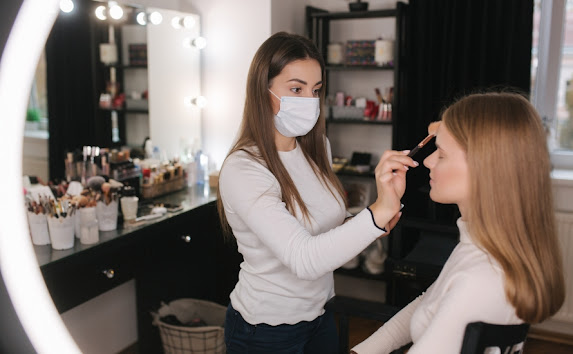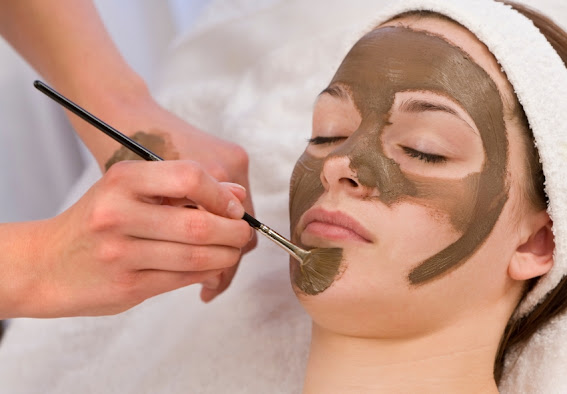Featured
- Get link
- X
- Other Apps
Difference Between a Makeup Artist and a Beautician
The beauty industry is filled with various professionals who cater to people's needs for looking good and feeling confident. Two of the most commonly used terms are makeup artist and beautician. While both professions involve working with clients to enhance their appearance even through salon services at home, they are different in terms of their training, skills, and job roles. In this article, we'll explore the difference between a makeup artist and a beautician.
What is a Makeup Artist?
A makeup artist is a professional who applies cosmetics and other beauty products to enhance a client's appearance. They work with clients for various occasions, such as weddings, photo shoots, fashion shows, and other events where a flawless appearance is crucial. Makeup artists use various techniques and products to transform a client's appearance, such as foundation, eyeshadow, eyeliner, mascara, lipstick, and other makeup items. They may also specialize in specific areas, such as bridal makeup, editorial makeup, special effects makeup, and others.
Job Roles
Makeup artists work in various settings, such as salons, spas, fashion shows, photo shoots, film and TV productions, and other events where makeup is required. They work with individual clients or large groups of people and collaborate with other professionals, such as photographers, hairstylists, and fashion designers, to achieve the desired look. Makeup artists need to have excellent communication skills, as they need to understand their client's needs and preferences and communicate effectively with other professionals.
What is a Beautician?
A beautician is a professional who provides beauty services to clients, such as facials, hair removal, nail care, and skin care. They offer a range of services to enhance a client's appearance and help them feel confident and relaxed. Beauticians work in various settings, such as salons, spas, and beauty clinics, and may specialize in specific areas, such as skin care, nail care, or hair removal.
Job Roles
Beauticians offer a range of services, such as facials, hair removal, nail care, and skin care, to enhance a client's appearance and promote relaxation. They do this with options for makeup service at home as well. They work with individual clients and offer customized services based on their needs and preferences. Beauticians need to have excellent communication skills, as they need to understand their client's requirements and provide advice on skincare, hair care, and other beauty-related issues.
Difference Between a Makeup Artist and a Beautician
Focus
Makeup artists focus primarily on applying makeup and enhancing a client's appearance, while beauticians provide a range of beauty services, such as skin care, hair removal, and nail care.
Training
Makeup artists require formal training in makeup application techniques, color theory, and sanitation practices, while beauticians require training in various beauty services, such as skin care, nail care, and hair removal.
Products and Tools
Makeup artists use a range of products and tools, such as makeup brushes, sponges, and palettes, to create different makeup looks. Beauticians use various products and tools, such as facial steamer, waxing kit, and nail polish, to offer different beauty services.
Job Roles
Makeup artists work in various settings, such as salons, spas, photo shoots, and fashion shows, and collaborate with other professionals to achieve the desired look. Beauticians work primarily in salons, spas, and beauty clinics and offer a range of services to individual clients.
Specialization
Makeup artists may specialize in specific areas, such as bridal makeup, editorial makeup, or special effects makeup. Beauticians may specialize in specific areas, such as skin care, nail care, or hair removal.
- Get link
- X
- Other Apps
Popular Posts
Keratin Hair Treatment: Benefits, Care, And Steps To Do It
- Get link
- X
- Other Apps
Get Glowing Skin at Home with Easy-to-Make Face Masks
- Get link
- X
- Other Apps



Comments
Post a Comment